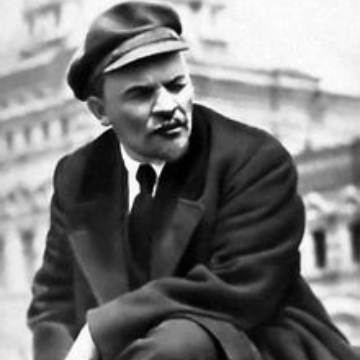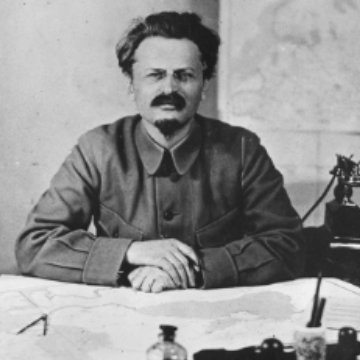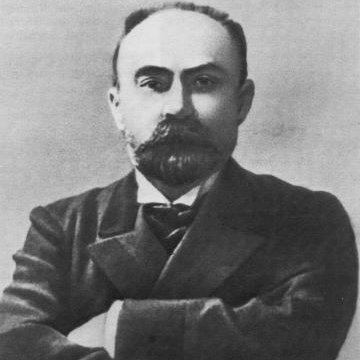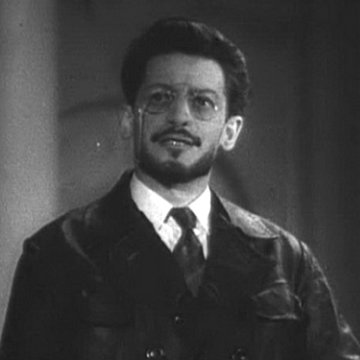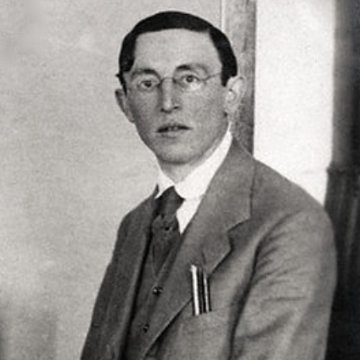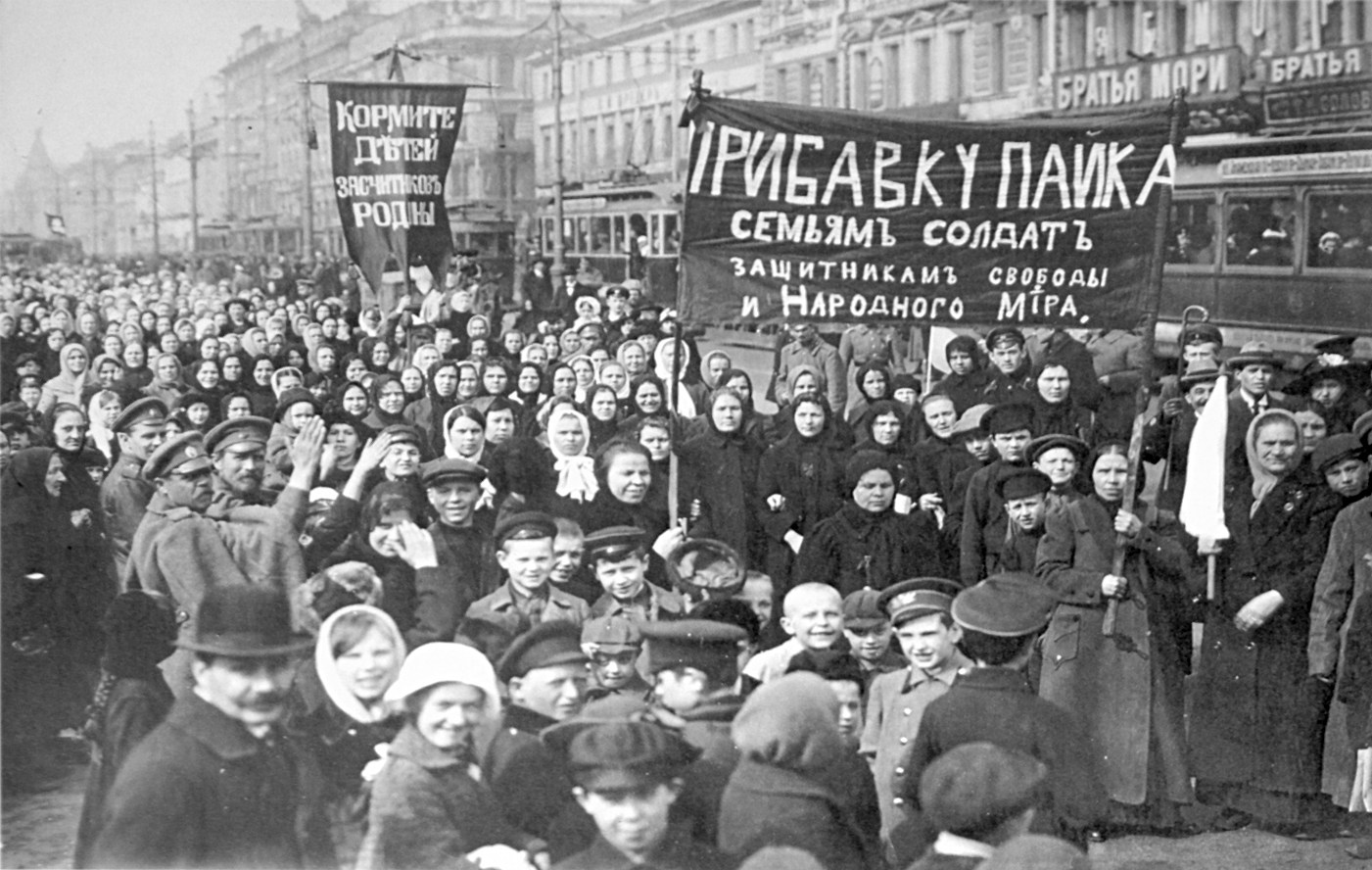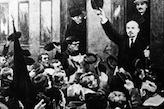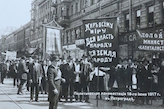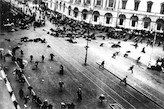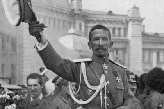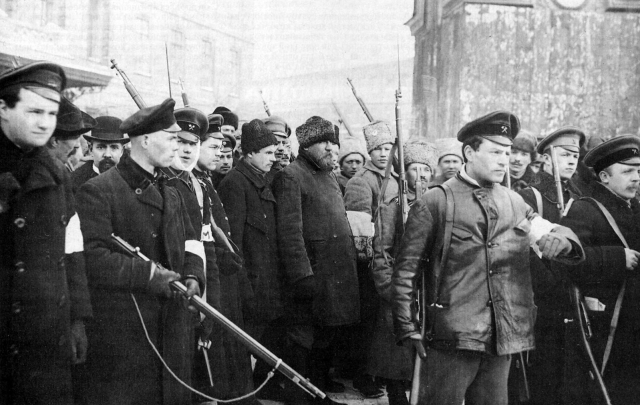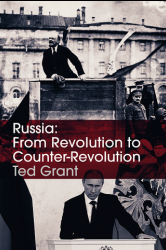"The adoption of the decree is urgent, otherwise opposition and sabotage will ruin us."
Delivered At A Meeting Of The All-Russia Central Executive Committee December 14(27), 1917
Minutes
The last speaker tried to intimidate us by asserting that we are heading towards an abyss, towards certain destruction. There is, however, nothing new for us in this intimidation. Novaya Zhizn, the newspaper that expresses the views of the group to which the speaker belongs, said before the October days that our revolution wou!d bring nothing but disorders and anarchic riots. Talk about our travelling the wrong road is, therefore, a reflection of bourgeois psychology that even disinterested people cannot get rid of. (Voice from among the internalionalists: Demagogy!") No, that is not demagogy, it is your constant talk of the axe that is real demagogy.
The measures proposed in the decree are only an effective way of ensuring control.
You speak of the intricacy of the machinery, of its fragility and of the involved nature of the problem—these are elementary truths that everybody is aware of. But if these truths are merely used to put a brake on all socialist undertakings, we say that anyone who takes that line is a demagogue, and a dangerous demagogue at that.
We want to begin an inventory of the vaults, but the learned specialists tell us there is nothing in them but documents and securities. Then what is there bad about representatives of the people checking them?
If what they say is true, why do those same learned specialists who criticise us not come out with it openly? Whenever the Council makes decisions they declare that they agree with us, but only in principle. This is the way of the bourgeois intelligentsia, of all conciliators, who ruin everything with their constant agreement in principle and disagreement in practice.
If you know so much about all these things and have the experience, why don't you help us. why do we meet with nothing but sabotage from you in our difficult task?
You proceed from a correct scientific theory, but for us theory forms the basis of actions to be undertaken, it gives us confidence in those actions and does not scare the life out of us. Of course it is difficult to make a beginning and we often come up against fragile things; nevertheless we have coped with them, are coping with them and shall continue to cope with them.
If book-learning were to serve no other purpose than that of hampering every new step and instilling eternal fear of the new, it would be useless.
Nobody, with the exception of the utopian socialists, has ever asserted that victory is possible without resistance, without the dictatorship of the proletariat and without seizing the old world in an iron grip.
You accepted this dictatorship in principle, but when that word is translated into Russian, called an “iron grip ” and applied in practice, you warn us of the fragility and involved nature of the matter.
You stubbornly refuse to see that the iron hand that destroys also creates. It is an undoubted advantage to us to go over from principles to deeds.
To effect control we have called upon the bankers and together with them have elaborated measures that they agreed to, so that loans could be obtained under full control and properly accounted for. But there are people among the bank employees who have the interests of the people at heart and who have told us:“They are deceiving you, make haste and check their criminal activity that is directly harmful to you“ And we did make haste.
We realise that this is an involved measure. None of us, even those who are trained economists, will undertake to carry it out. We shall invite the specialists who are engaged in that work, but only when we have the keys in our own hands. Then we shall even be able to draw advisers from the former millionaires. We invite anybody who wants to work as long as he does not try to reduce every revolutionary enterprise to mere words; that is something we shall not stand for. We use the words "dictatorship of the proletariat" in all seriousness and we shall effect that dictatorship.
We wanted to take the line or agreement with the banks, we gave them loans to finance factories, but they carried out sabotage on an unprecedented scale, and practical experience has forced us to adopt other measures of control.
A comrade from the Left Socialist-Revolutionaries has said that in principle they would vote for the immediate nationalisation of the banks and afterwards work out practical measures in the shortest possible time. But he was wrong in that, because our draft does not contain anything but principles. The Supreme Economic Council is waiting to discuss them, but if the decree is not approved the banks will immediately do everything to further disrupt the economy.
The adoption of the decree is urgent, otherwise opposition and sabotage will ruin us. (Stormy applause.)
Footnotes
[1] Delivered to the All-Russia Central Executive Committee on December 14 (27), 1917, in connection with a discussion of the decree nationalising the banks.
Work on practical measures for the nationalisation of the banks was started as soon as the socialist revolution won out. The State Bank was seized on October 25 (November 7), 1917. Having overcome the sabotage of the bourgeois officials, Soviet power soon established practical control of the State Bank and set up control over private banks as a transitional measure to their nationalisation. However, because of sabotage by the bankers, the Soviet Government speeded up the nationalisation of private banks. On the morning of December 14 (27), the Government ordered workers' detachments and fled Guard units to seize all banks and credit institutions in Petrograd. That same day, the All-Russia Central Executive Committee adopted decrees “On the Nationalisation of the Banks” and “On the Inspection of Steel Safes in Banks”.
Both decrees were published in Izvestia No. 252 on December15 (28).
Source: Marxist Internet Archive.


